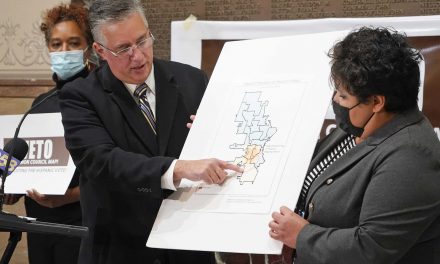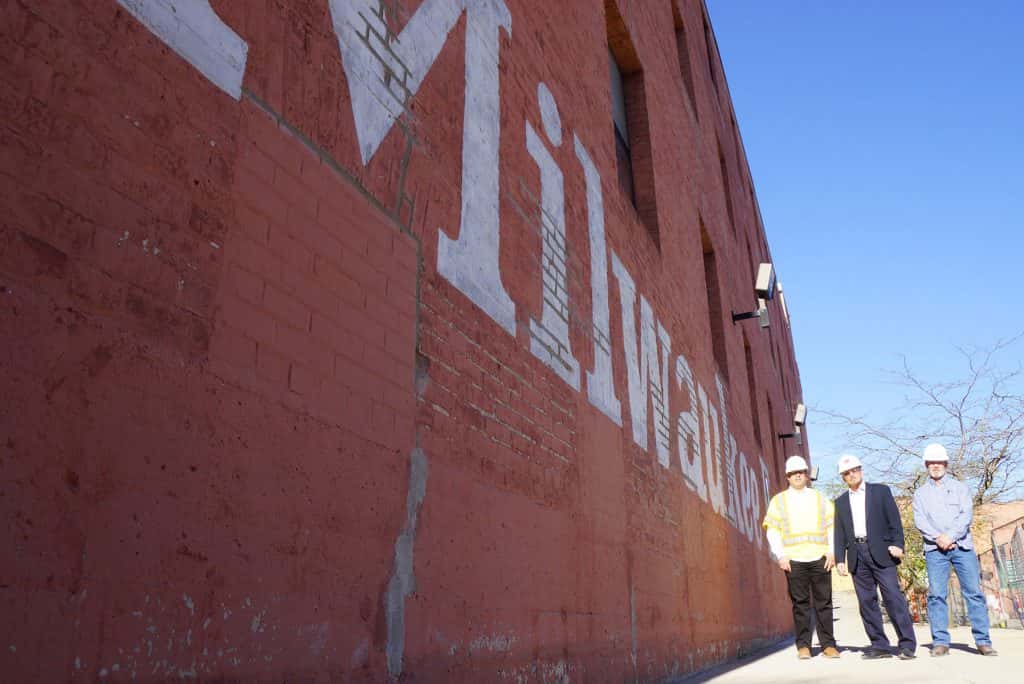
Born and raised in Milwaukee, Asia was the last place Chris Olszyk ever expected to live. Yet he has been working in Japan for nearly three decades, while keeping a home and connections in his birth city.
He has had a unique perspective to watch a foreign culture evolve, and experience an economy go from boom to bust. Olszyk sees Anime as a great cultural exchange between two cultures, and how technology has supported continued fascination with Japan.
Q&A with Chris Olszyk
Milwaukee Independent: What year did you first move to Japan, and why did you go?
Chris Olszyk: 1989. I was teaching in the Houston area. There was an article in the Sunday newspaper about working in foreign countries, and mentioned a teaching program sponsored by the Japanese government. I’d never really been drawn to Japan or Asia in general, but I had traveled before, and this just peaked my interest, I kept rereading the article, until I decided to apply. When I was actually chosen, I thought it would be an interesting experience, two years maximum.
Milwaukee Independent: What was your perception and experience of Japan when you first arrived?
Chris Olszyk: Crowded, noisy, exotic to be sure, like nowhere I had ever seen before. Language seemed impossibly difficult. I felt helpless. Sometimes Japanese are at their best when faced with a helpless foreigner in need.
Milwaukee Independent: What major changes you have witnessed in Japan over the past two decades?
Chris Olszyk: Japan was really prospering and booming in the 1980s. But when I arrived, the boom was over, there were a lot of closed businesses, lost jobs, broken dreams for the young. The “Japanese Miracle” had blossomed, and withered. Since then there have been tough times. All the hysteria of the hot economy has gone, it’s been hard, Japan has struggled to find a balance, people have had to adjust, people’s dreams and expectations have matured. And I’ve been there, watching and living through it as an expat. It’s been fascinating.
Milwaukee Independent: Being a Milwaukee native, how have you kept your connections here over the years?
Chris Olszyk: Internet changed everything. Life in Japan at first could make a foreigner feel so isolated. Outside contact was difficult and expensive. Now I can keep up with all the local Milwaukee news, new restaurants I want to try out, upcoming concerts all of that, I don’t have to ask everyone what’s new in town. Sometimes they ask me. Business and personal contacts are not so hard to maintain anymore. But it takes effort, constant effort. You can’t really live in two places at one time, so you compensate, try to catch up, on both sides. It’s hard sometimes.
Milwaukee Independent: What do you like most and least about Japan?
Chris Olszyk: These days most people live in cities, big cities. Me too. They are so busy, so crowded, but basically so functional. You have to squeeze and push sometimes, but everyone gets in. There’s always a little more room, people accommodate each other, usually gently and cheerfully. It’s rude to complain or get angry publicly, so there is so little strife or harassment to deal with through a normal day. Japanese are trained from childhood to get along with each other, respect others, honor one’s elders, and such, which they do successfully to an amazing degree. It’s really nice. But there is a darker side to this training. One is forever a part of a group, a team, a circle, a company, a club. The group demands, and gives, loyalty and support to all who belong. To live in Japan and not belong to dozens of social, professional, and family groups is to have not an easy life. As foreigners, we struggle to find our place in this order, and we either succeed or we go home. A Japanese who just doesn’t quite fit in can become a misfit, a particularly cold and difficult life to live.
Milwaukee Independent: Do you see any similarities with your community in Japan and Milwaukee?
Chris Olszyk: Not really. Everything hard over there is easy here, and vice versa. It’s a generalization, but kind of true.
Milwaukee Independent: What has been the biggest challenge with working on one side of the Pacific and keeping a home on the other?
Chris Olszyk: It’s not been too hard. I like being around, making decisions and solving problems in person. I don’t like delegating or hiring out. But I get used to it, slowly.
Milwaukee Independent: What do you think is the biggest cultural misunderstanding that Americans have of Japan, and vice versa?
Chris Olszyk: Japanese learn about America through movies (action, romantic, Disney) and music, Americans learn about Japan from movies (war movies, Godzilla, Anime) and music. That always leads to generalizations, then misunderstandings. On a more fundamental level, I think that we communicate differently. Americans are taught that it is good to always be honest, frank, and sincere in our interactions, and to verbalize clearly. Japanese on the other hand are taught that it is good to act properly and politely, not to express too much emotion which might be rude. Giving frank opinions might be disrespectful, and that is really unacceptable in Japan. Even people fluent in both languages are constantly being misunderstood because of this.
Milwaukee Independent: What has been the most important lesson that living overseas has taught you?
Chris Olszyk: It keeps me humble. No matter how long I live in a foreign culture with foreign language and lifestyle, I’m still making mistakes. Big mistakes. They just happen when you least expect it. I have to swallow my pride and pick up the pieces, laugh a little, apologize, whatever. And move on. You really can’t get too set in your ways, it’s very healthy.
Milwaukee Independent: When you return to Milwaukee, do you ever have a culture shock? And about what?
Chris Olszyk: Not so much anymore. Huge selections of food and lots of space, I think most people coming from Asia experience that. I’m a language teacher so I enjoy just listening to casual conversations, and hear the way English never stops evolving.
Milwaukee Independent: Do you think Anime has helped improve awareness of Japanese culture in Milwaukee? If not, what could help accomplish this?
Chris Olszyk: Last year I was on the #30 bus when a whole group got on, all in costume. painted tights. head gear, shields, wands, the works. I just had to tell them how awesome they all looked, and they were all telling me about this Anime Milwaukee convention that was happening that weekend. How cool Anime was, and how cool Milwaukee was to sponsor it, on and on. I never told them that I’d been living in Japan for years, I just enjoyed their excitement and enthusiasm. Yes, Anime is real, something people can really watch and follow and get involved in. You don’t have to speak Japanese to understand a bit about Japanese culture. It’s right there in Anime, on so many levels.
Milwaukee Independent: What advice would you give someone interested in moving to Japan for work?
Chris Olszyk: Plan ahead. Living in Japan is not a vacation trip. Spontaneity is not the operative word in Japan. Making contacts, formal introductions, attention to detail can be hard work, but it can really pay off. Old-style office decorum and etiquette may be slowly loosening, but still plays a big part in most work situations. If you are interested but not sure, try a short trip first, get out of the big cities and wonder a little, even for a few days. Japan is usually not what people expect it to be. So go with an open mind.















